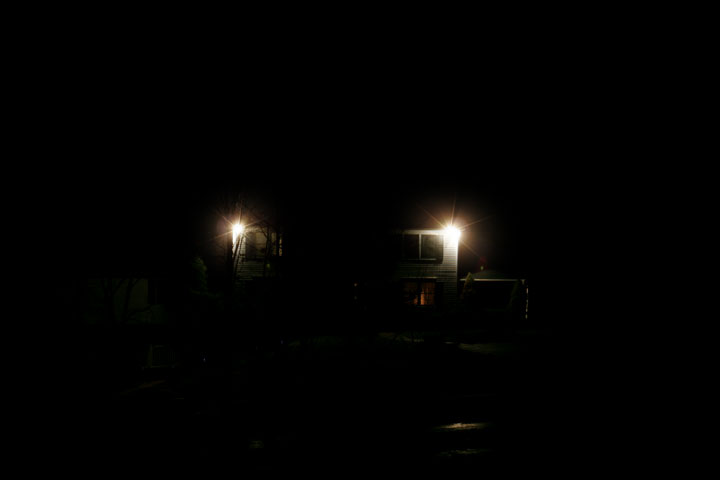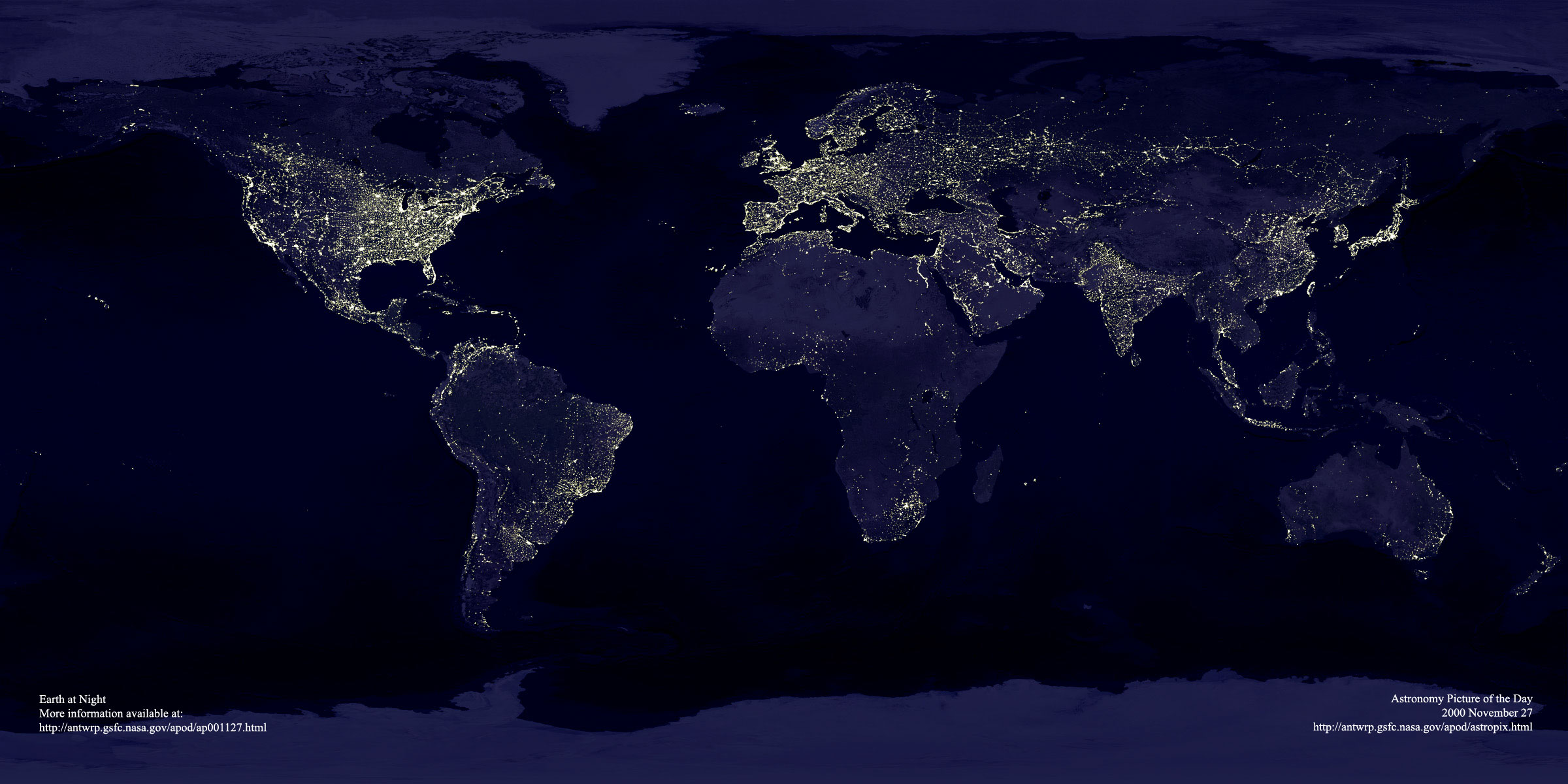| Primordial Light: LIGHT POLLUTION |
| Chances are when (if) you think of pollution you think of air pollution, oil spills, pesticides in streams, and the like. There is a kind of pollution that is a less obvious nuisance. Light pollution is harmful to the quality of life and health of human beings and it is harmful to wildlife, especially birds, and to plant life. The irony surrounding light pollution is that while air pollution, oil spills, and such like are very expensive to clean up, industry, small businesses, governments at every level, and private individuals can save money by curbing light pollution. All that is required is for everyone to aim their outdoor lights where light is needed—the ground—and stop shining light into the sky and on other peoples' property. Directed light requires fewer fixtures and lower wattage bulbs, and that's money in the bank. |
The night is supposed
to be dark. In most of the United States and Europe, and in cities
everywhere, it is not. Have you ever looked to the south on a summer
evening and seen a broad and beautiful band of light stretching from
the horizon, arching overhead, and disappearing in the north? Probably
not. That would be the Milky
Way—our home Galaxy—and you would know it well if
we had dark skies. |

The owner
of this house is convinced
he needs these lights for security, the idea being that anyone trying to
break into his house in the night will be seen. He's wrong on at least
three counts. First, no one is looking at his house at 2:00 a.m. Second,
if someone were looking at his house they would be dazzled by the glare
from his spotlights and they would have virtually no chance of seeing
an intruder moving about in the deep shadows. Third, how does throwing
glare on a neighbor‘s property (light trespass) help
to secure his property!?
One can read a newspaper in an otherwise unlit area hundreds of feet
from his house by the glare of his spotlights.
My neighborhood
has nine houses, including mine. Each of them has improper
outdoor lighting (but my outdoor lights are disconnected.)
Four of the remaining eight houses employ outdoor lighting
in such a way as to degrade the quality of my astrophotography—though,
fortunately, it is not always turned on. Repeat this thoughtless lighting
in millions of households and in uncounted parking lots, factories,
small businesses, streetlamp installations, and one of the worst offenders,
signs lit from below, in which over 90 percent of the light goes into
the sky, and it's not difficult to imagine that it amounts to at least
$1 billion a year in wasted energy. Considering the international political
situation, can we afford that kind of waste?
There is more to this than my
selfish desire to see the night sky. While we can put a price on the energy
that is wasted by poor outdoor lighting, no one has been
able to name the value of natural beauty to the human race. That it has
value is apparent from the fact that humans began making art before
they began building houses. We spend billions to preserve our national
parks and monuments, but ignore the transcendent beauty that can be seen
only at night. Also to be considered is the effect of poor lighting on
wildlife, especially birds. Birds become confused in the presence of glaring lights at night and many die in collisions
with overly lit buildings. Improper lighting interferes with the imporant
diurnal sleep-and-wake cycle of many animals as well as plants. Considering
that we could save a billion dollars a year by preserving the beauty of the night, while reducing the threat to plants and animals, I can think of no reason for not doing so—unless we are,
as has been suggested in other contexts, a nation of self-absorbed sheep,
too inwardly focused to notice what's wrong and, if told what's wrong, too complacent to stand up and say "That's not right. Let's fix it." Here's
another image to consider:

Observatory |
